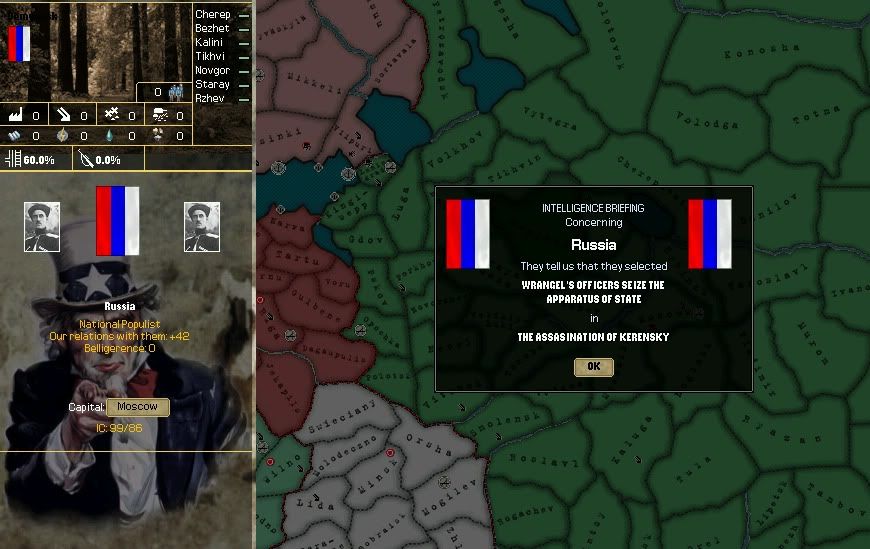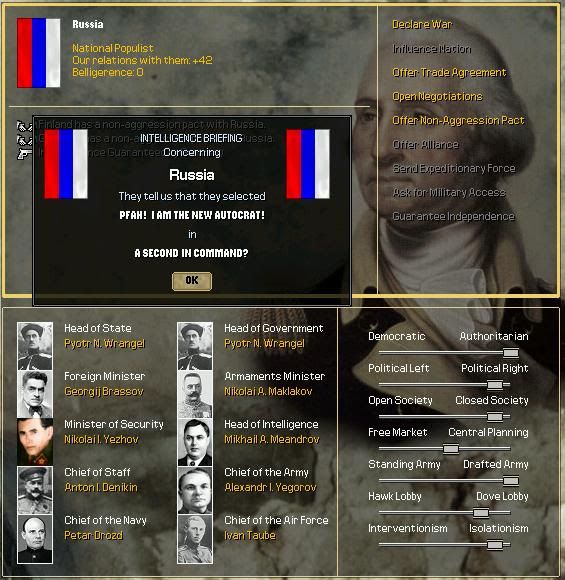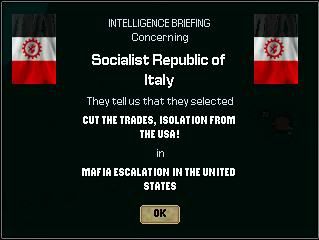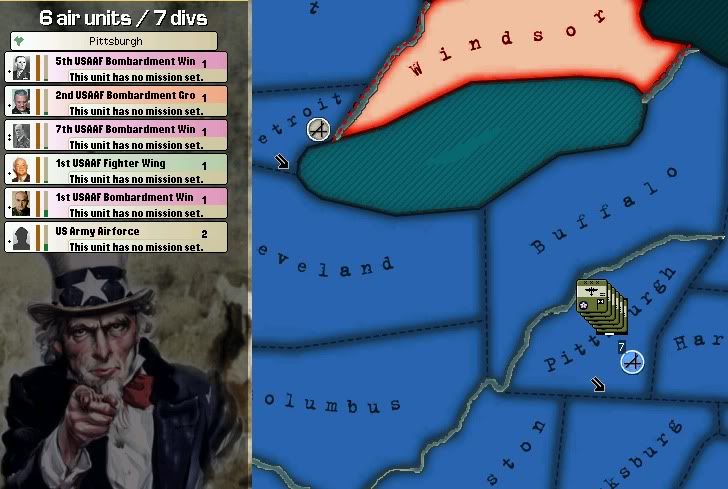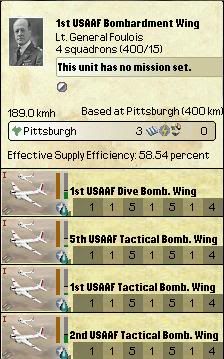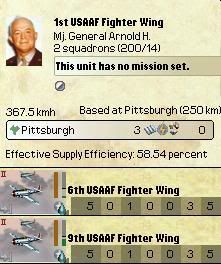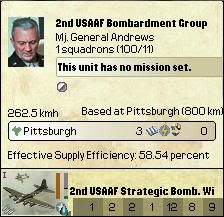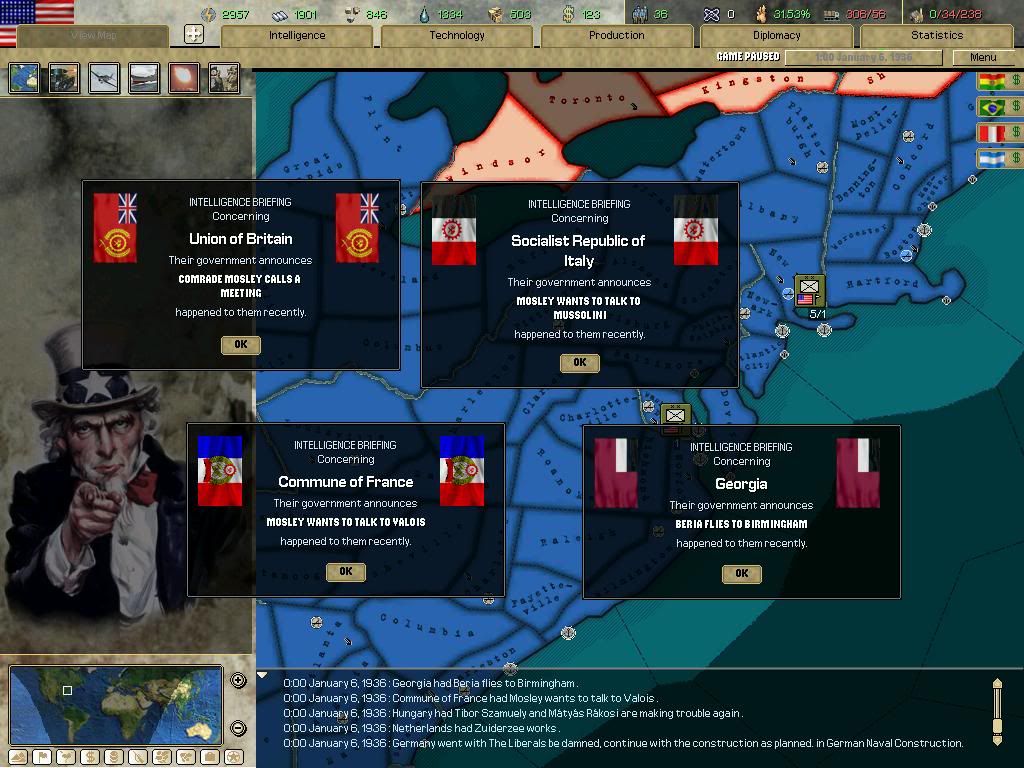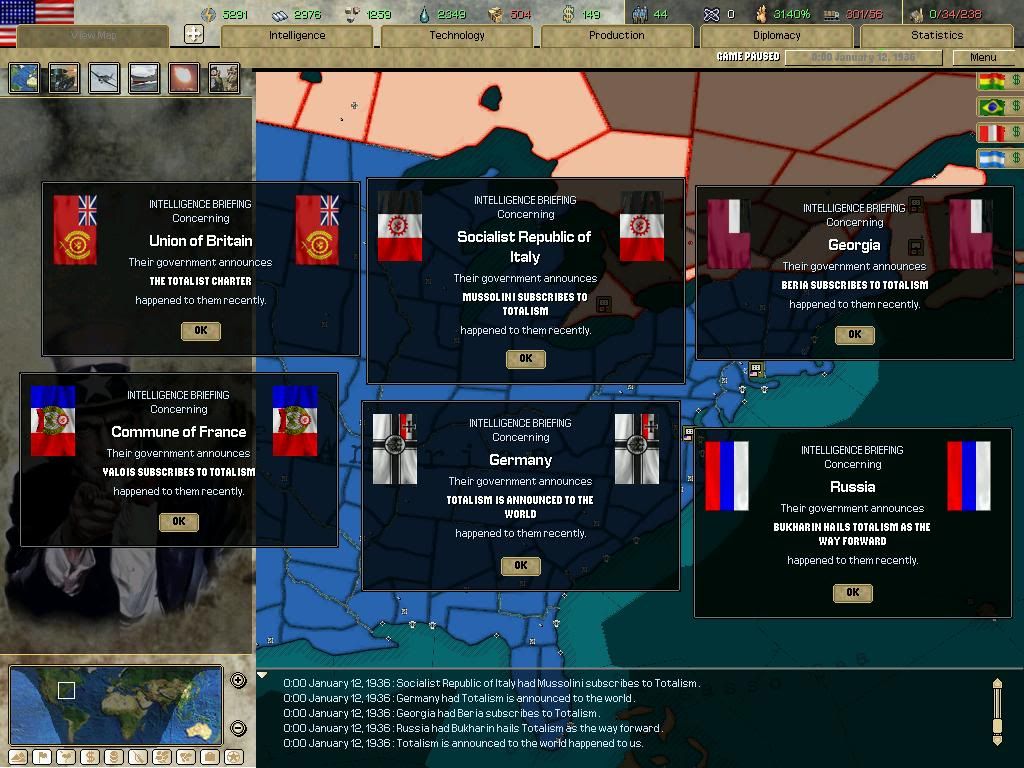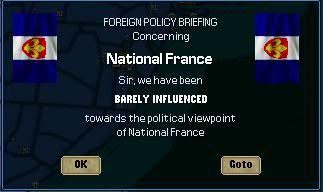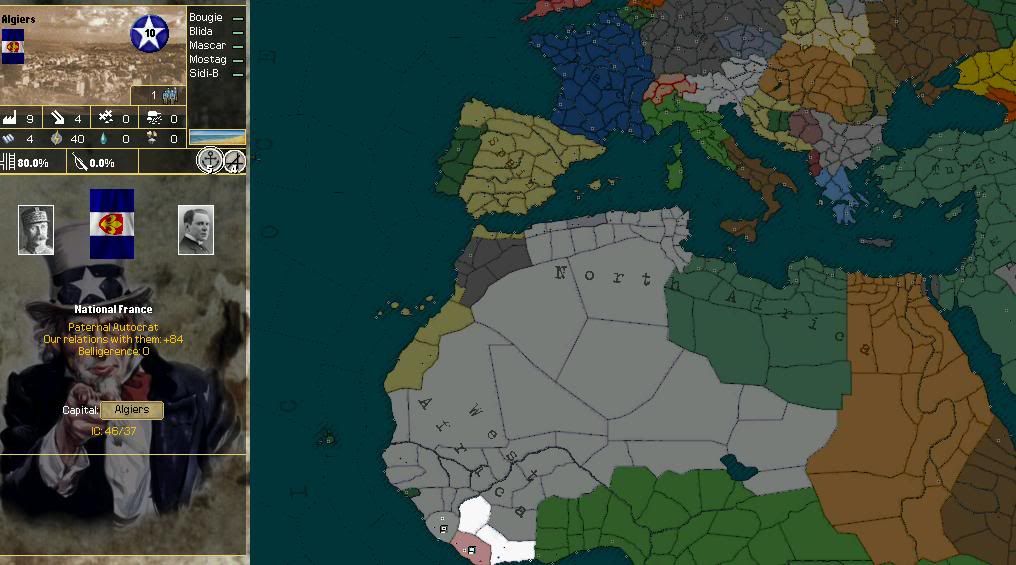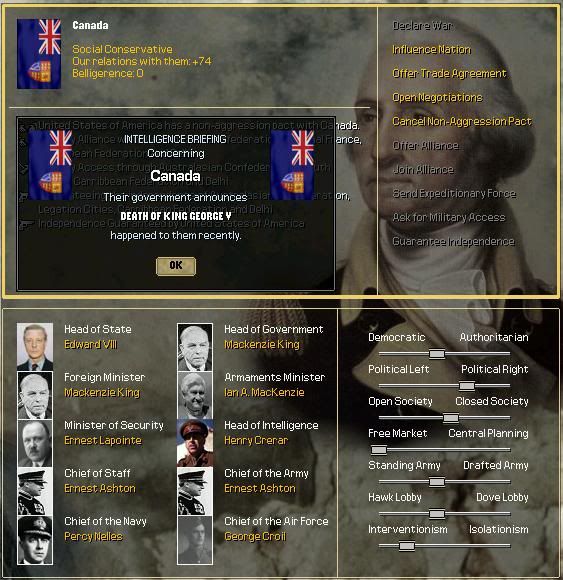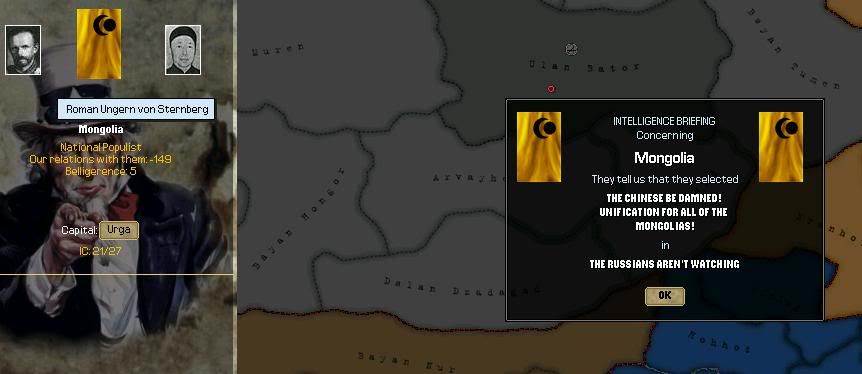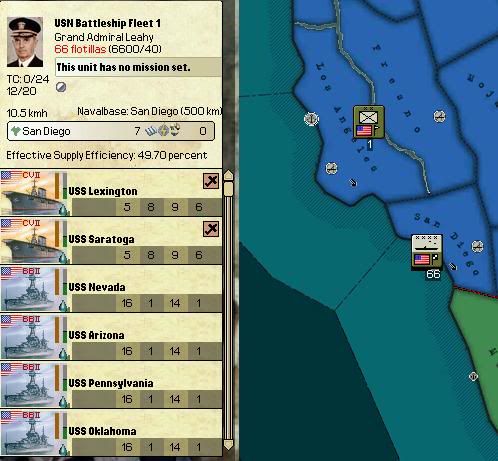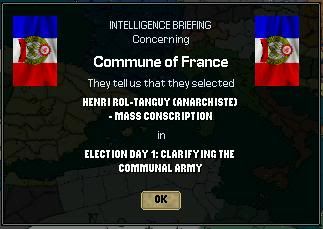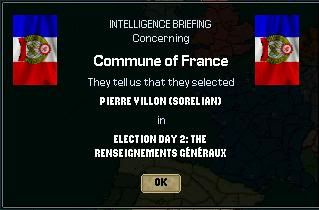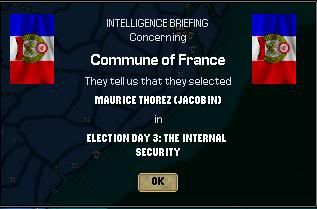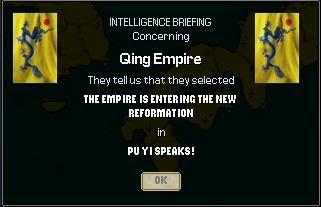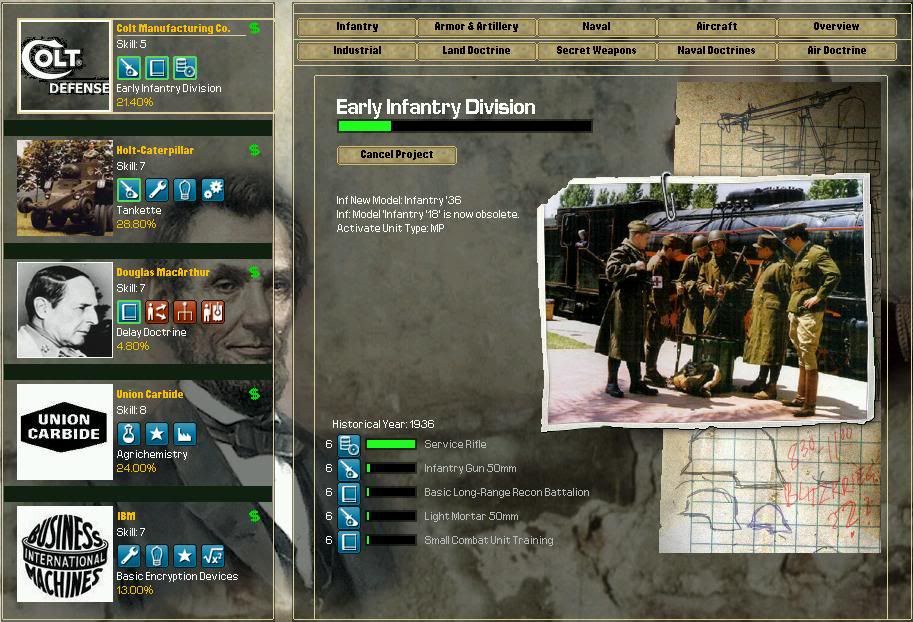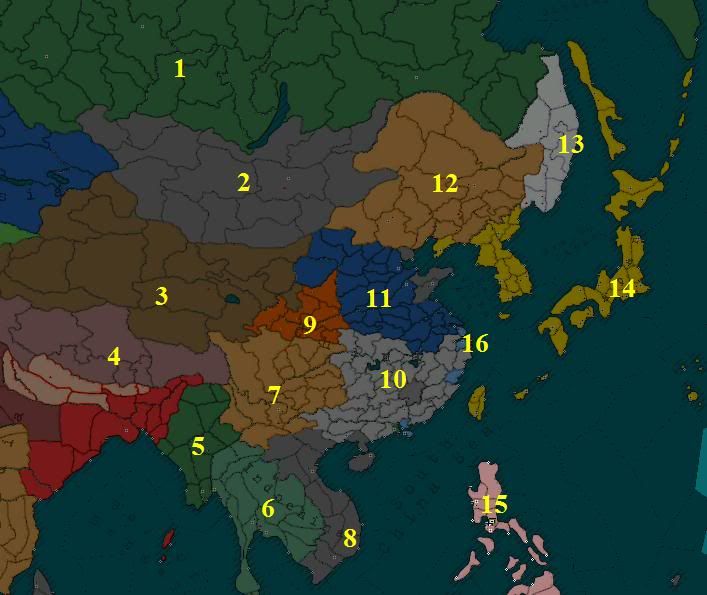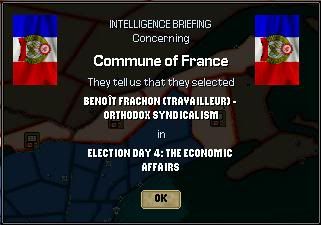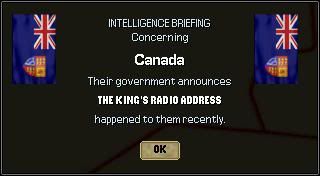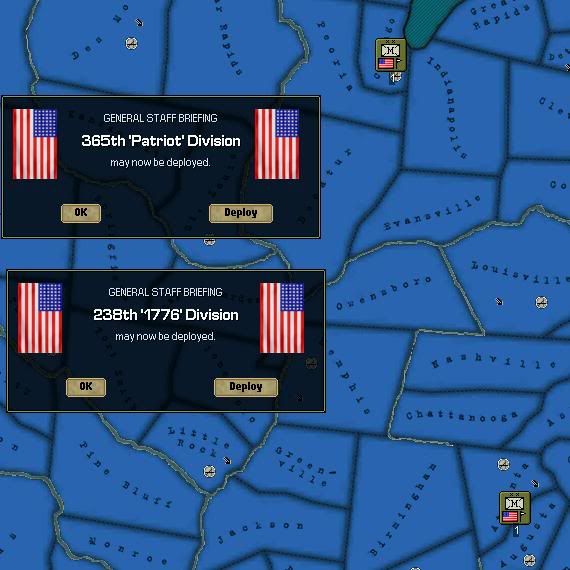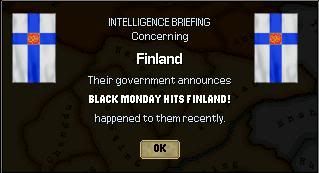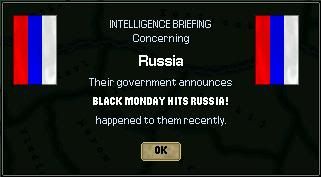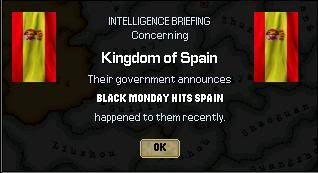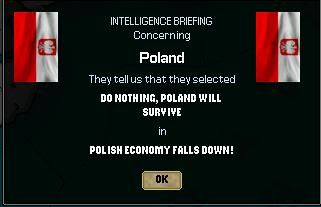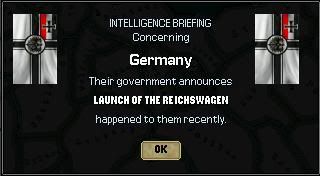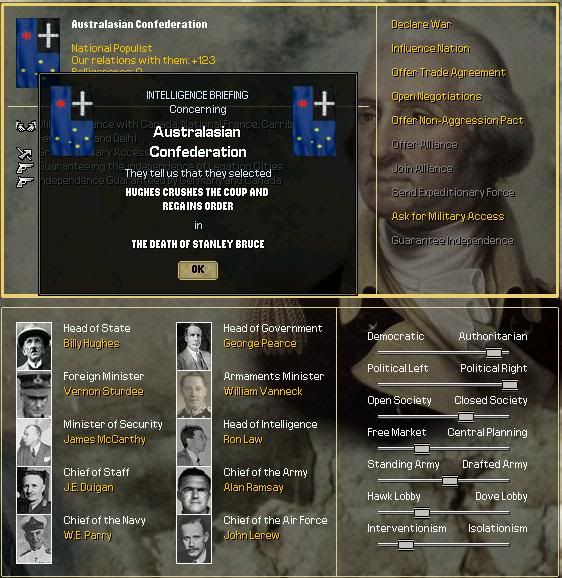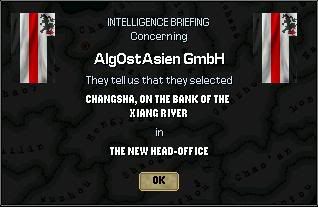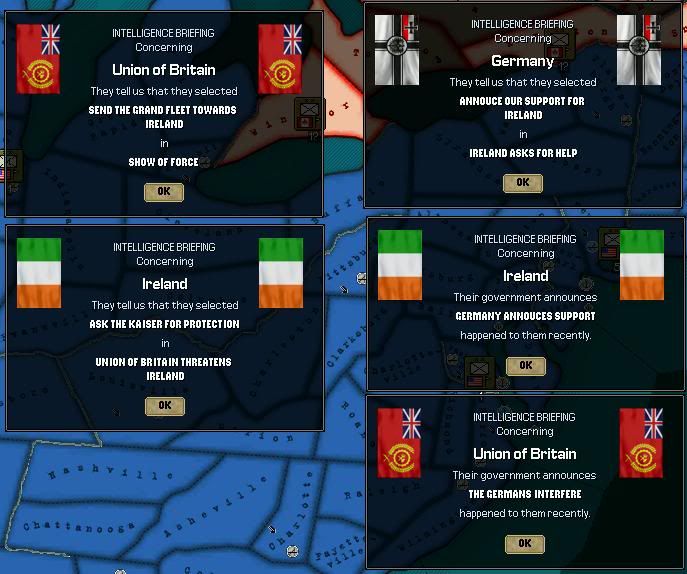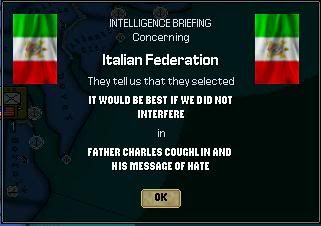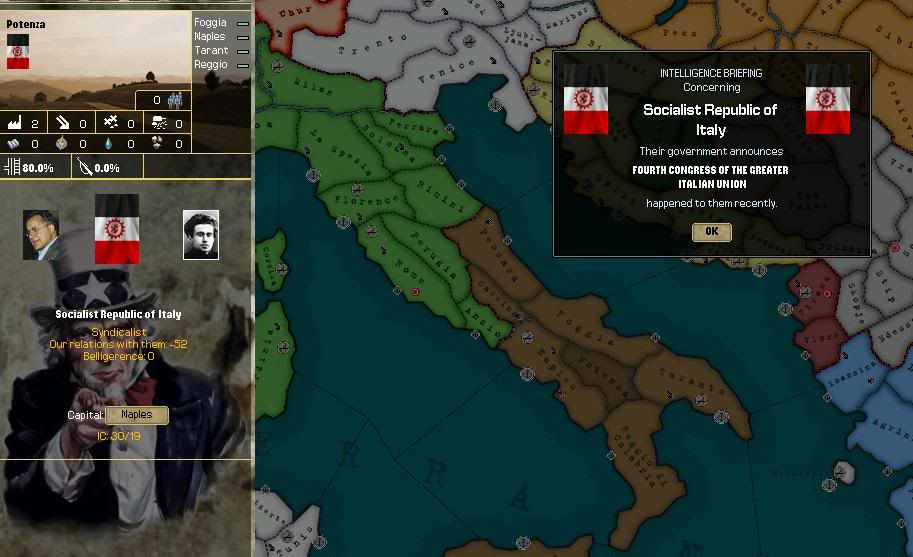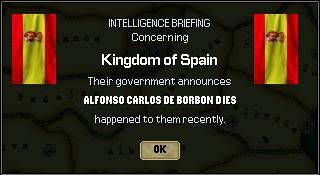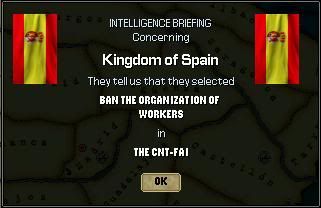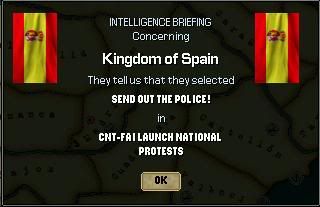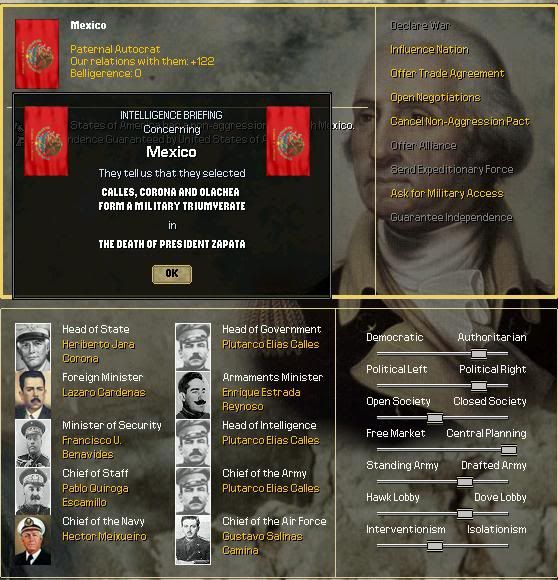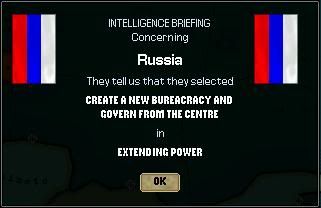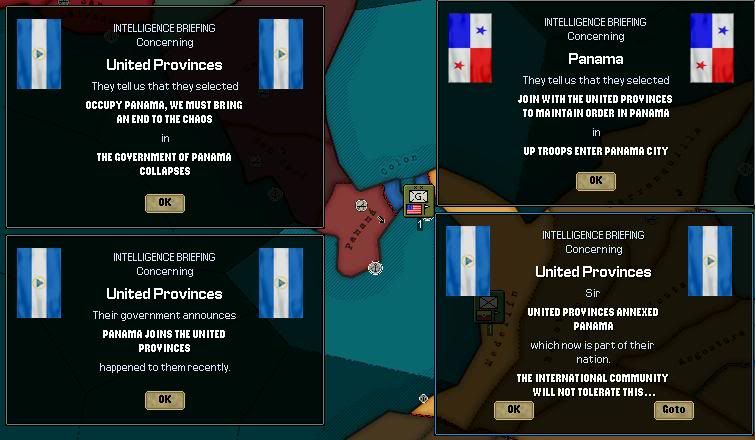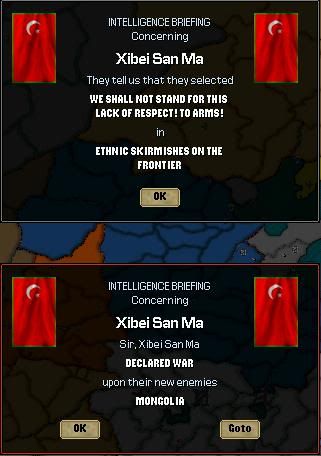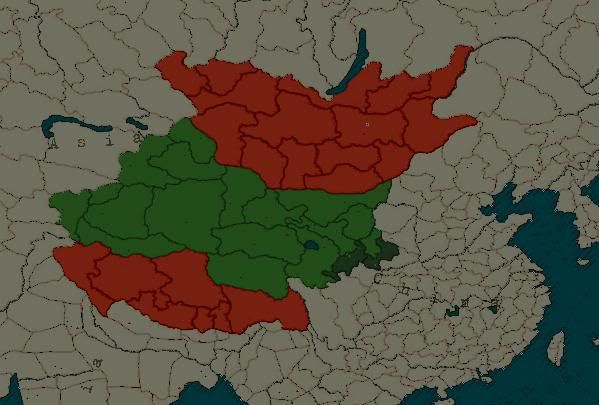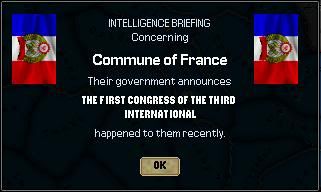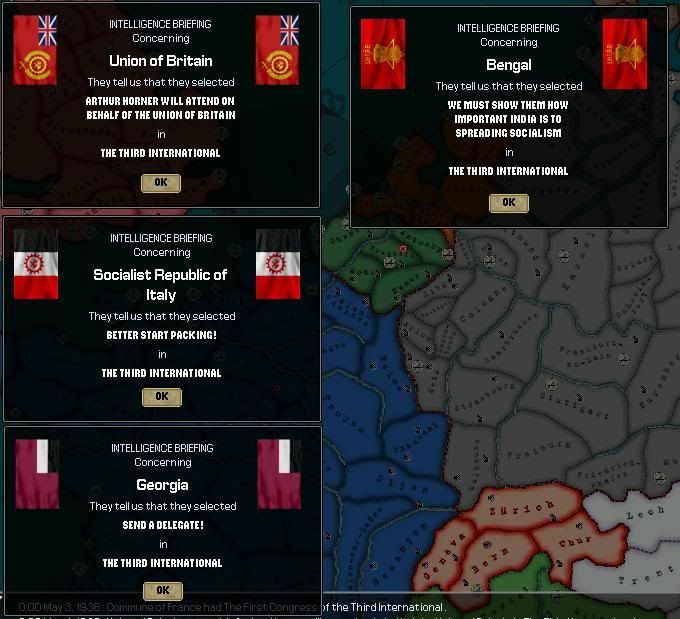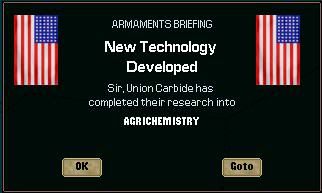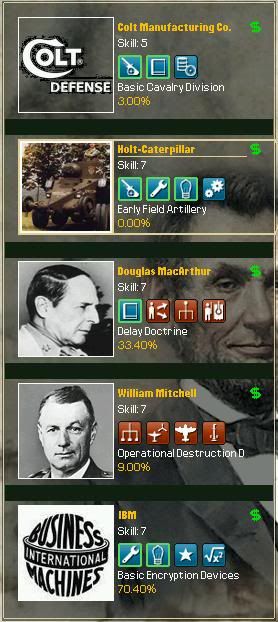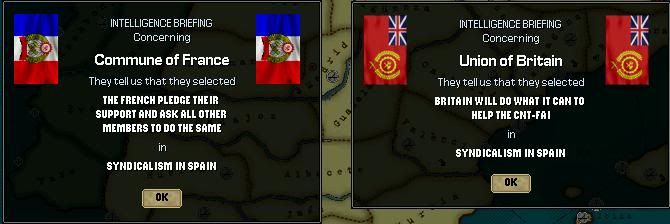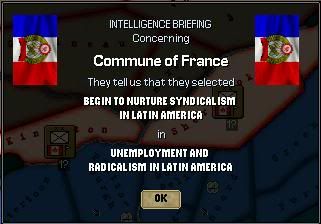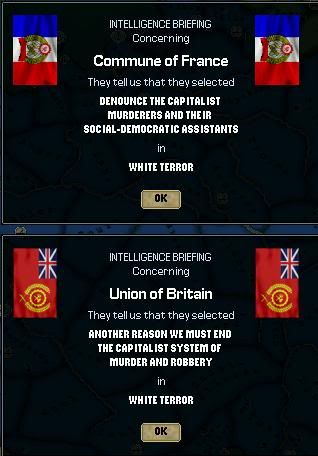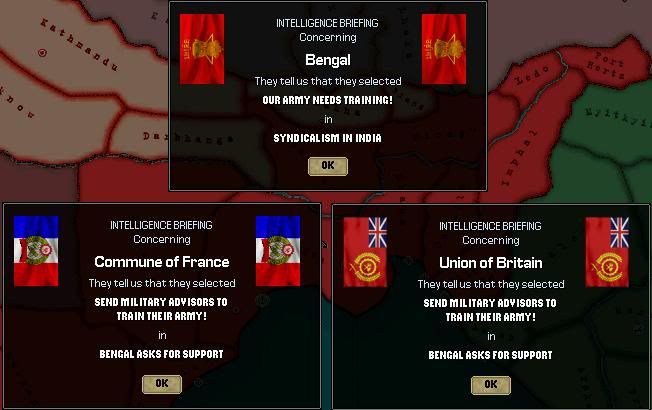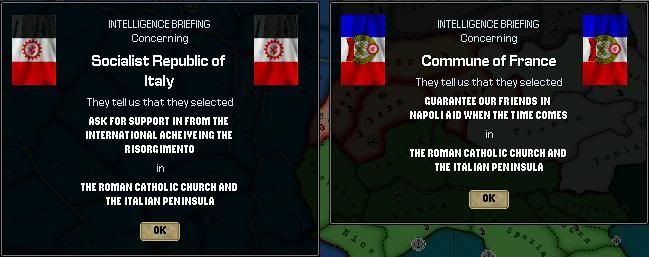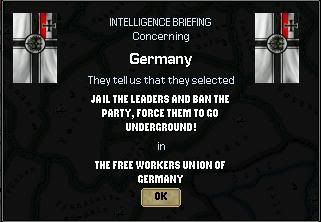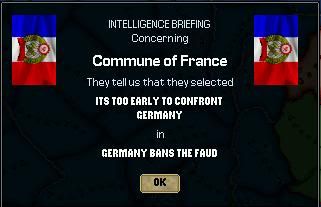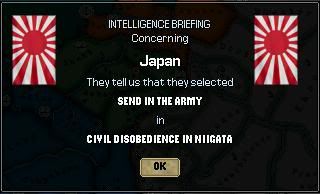The United States, June – October 1936
June began with a dramatic and rather unorthodox proposal by the claimant of the Bourbon throne in Spain, Prince Xavier of Bourbon-Parma. He approached Ireland, Austria, Portugal, and the Vatican-led Italian Federation, inviting them to form a Catholic 'economic alliance' when he takes control of the Spanish crown. All agree to this, perhaps reasoning that he, rather than the legitimate King of Spain, can guard the Iberian peninsula against Syndicalism and that combined they can restore the prestige and power of the Pope and Catholicism in general. Exactly what sort of aid they might grant him is not yet known.
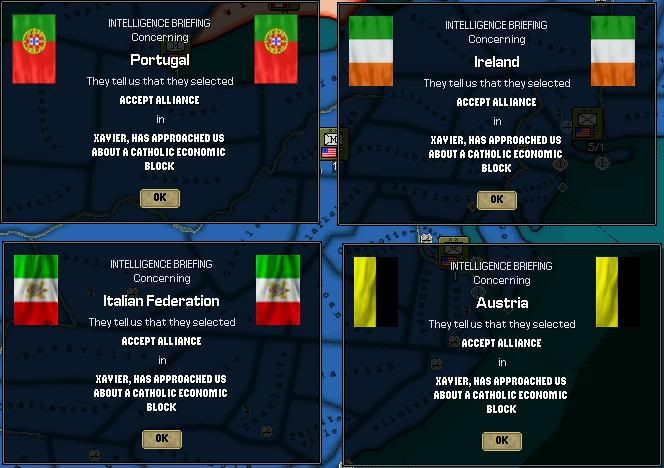 The Kaiser has not yet commented on Ireland's move away from Berlin
The Kaiser has not yet commented on Ireland's move away from Berlin.
A somewhat heartening development in China, as Emperor Pu-Yi's reformation takes a decidedly sensible tone. It is announced that “China can never be restored without a solid foundation on which to build” and that the empire's policies will work to ensure the end of famines in China and an increasing industrialization. Whilst this does not preclude aggressive moves on his part, it does suggest that he has more than just a tokenistic concern for the wellbeing of his population; the Qing armies are believed to already be sufficient to mount a war of conquest against Shangqing Tianguo and, if Germany did not get involved, against the Algostasien GmbH.
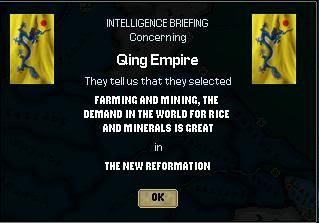 Operating in the better traditions of autocratic rule.
Operating in the better traditions of autocratic rule.
Back in North America, the US and to a lesser extent Canada were in for a hellish summer. Record temperatures were recorded across the continent and tempers flared in the uncomfortable conditions.
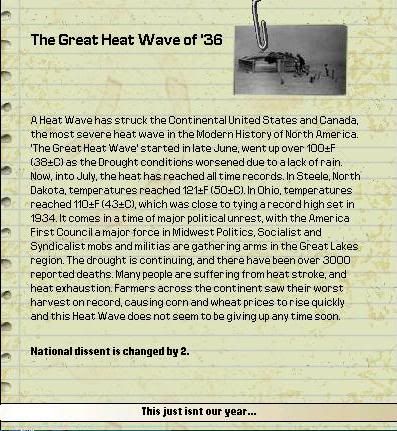 Sadly not enough to keep people indoors
Sadly not enough to keep people indoors.
Events in June would conspire to arouse the Communists whilst slightly mollifying the Populists in the South. Alexander Berkman, the heart of American Syndicalism, finally lost his battle with cancer and died in the late hours of June 27th. Though no foul play was suspected or claimed, his death nevertheless served to galvanize the Syndicalists in America and to spur them to ever-louder and more strident protests and demands.
In the South, meanwhile, the situation would be slightly cooled by the release of the book Gone with the Wind, which Southerners interpreted as supporting their cause. Perhaps feeling that the novel would help their cause on a national level due to its evident qualities, there was a slight but nonetheless notable decline in anger in the South, with marches becoming just a little less destructive and violent.
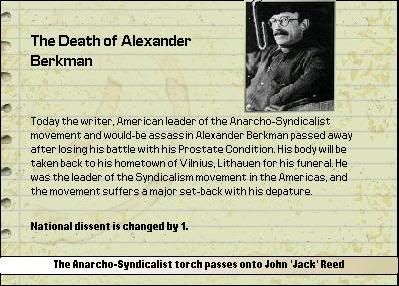 This leaves Jack Reed as the presumptive heir of the American reds.
This leaves Jack Reed as the presumptive heir of the American reds.
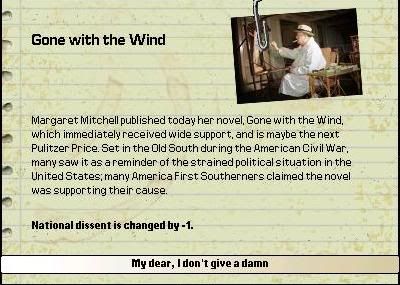 Hollywood is already trying to make a movie.
Hollywood is already trying to make a movie.
To the north, the Canadian parliament passes their new defense bill, known as Bill C-7. Among the first of its prescriptions to come into force is the decision to scrap obsolete RN and RCN ships to recycle whatever could be salvaged. There had been some considerable wrangling over whether to sell them to the Caribbean Federation or Dehli rather than scrap them, but it was clearly felt that the resources were needed by Canada.
Weirdly, Canada decides they cannot afford significant industrial investment this year. Given their military ambitions and the clearly degrading world situation, it was expected almost universally that they would find a way to make it feasible.
 The bill also provided for better pay and conditions to encourage more military volunteers.
The bill also provided for better pay and conditions to encourage more military volunteers.
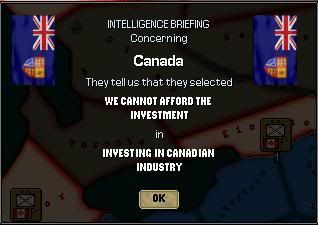 Britain outproduces Canada by almost 40%; was this wise?
Britain outproduces Canada by almost 40%; was this wise?
Despite the heat and tension, for at least one day in the year an air of fraternity and brotherhood descends across the country. The Fourth of July is celebrated in good faith by almost all, and the few who attempt to capitalize on the holiday and accuse rival factions of not being true to the ideals of the Founding Fathers are soon denounced in Atlanta, Chicago, and Washington.
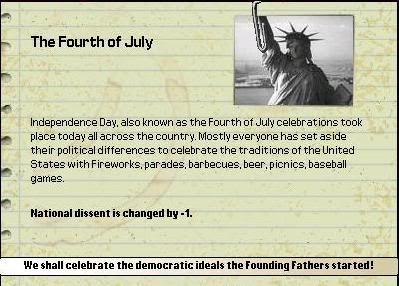 Not that it would last, of course.
Not that it would last, of course.
Democracy is no longer so revered in Australasia, where Hughes and his cadres waste little time in stamping on any disobedience. Rumors abound that King Edward is trying to quietly nudge the confederation back towards a more liberal, democratic bent, but Hughes does not seem to be heeding him.
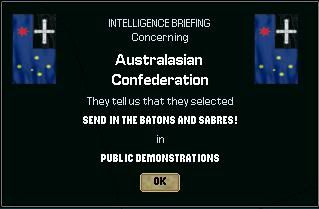 I'm going to report this to me member of parliament. Hey, Gus! I got something to report to ya!
I'm going to report this to me member of parliament. Hey, Gus! I got something to report to ya!
More good news follows for the US, as Canada is soundly thrashed in the Stanley Cup 4-2. Tempers cool just a little more as an accomplishment all Americans can be proud of is reported countrywide.
 Even if hockey
Even if hockey is
a silly sport.
By late July, the first of the new infantry divisions is trained and ready to go. Given the recent coup d'etat in Mexico the unit is deployed to Corpus Christie in an effort to protect Texas' industrial heartland, in the event of hostilities with Mexico. Another division would be ready in late September, and would be deployed to El Paso.
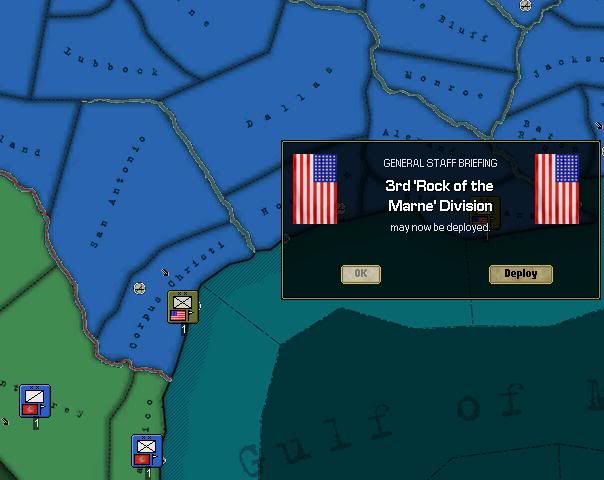 We may need to build a wall here.
We may need to build a wall here.
In Japan the situation continues to deteriorate around Niigata, and beginning to spread through the country. Martial law is declared in an effort to bring the situation under control.
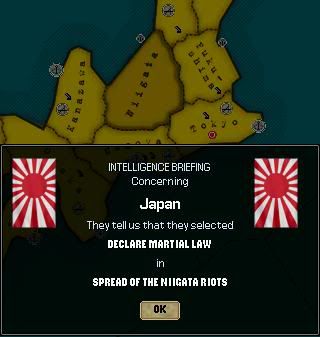 The Showa Emperor is willing to take all steps to preserve his country.
The Showa Emperor is willing to take all steps to preserve his country.
In Germany, a sad day as former Reichskanzler Georg Michaelis passes away. President Hoover sends the usual diplomatic courtesies to the country.
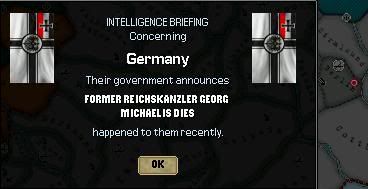 'Cause I gotta have faith
'Cause I gotta have faith
Poland, ever chafing under German hegemony, presses once again for the right to have a Polish monarch. Perhaps mollified by years of dominance, or perhaps concerned by the worsening situation in the world, Kaiser Wilhelm II agrees to this. To the great surprise of all, Poland immediately fails to decide on a King and instead appoints a regent until such time as the debate had been settled.
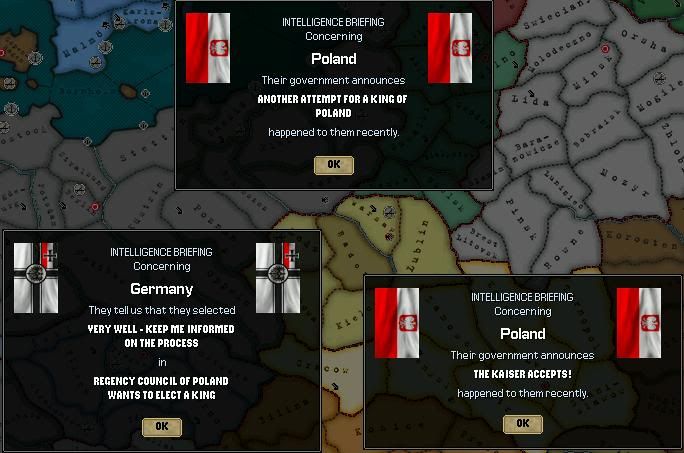
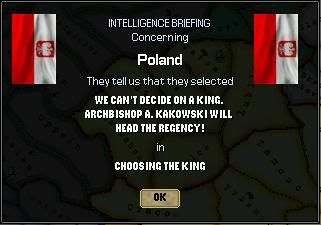 Foolishly, we assumed that they wanted a King so bad because they actually
Foolishly, we assumed that they wanted a King so bad because they actually had one in mind.
Russia continues along an autocratic path, with Petr Wrangel declaring quite unequivocally that Orthodoxy is the Russian state religion.
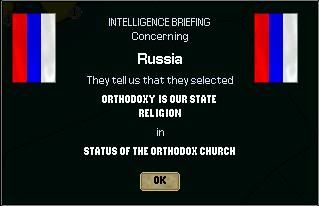 Third Rome stands yet
Third Rome stands yet.
A confrontation between Germany and Japan looks almost inevitable at this point, as Korean exiles in the Legation Cities secure German backing for a planned uprising. Korea has been part of the Japanese Empire for years now, but they are not happy with the situation and it is well known that a strong independence movement exists.
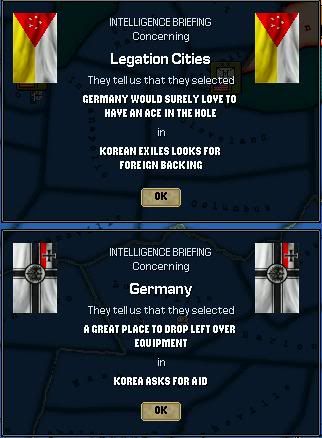 A provocative gesture, no doubt. It is unlikely to intimidate Japan.
A provocative gesture, no doubt. It is unlikely to intimidate Japan.
Nonetheless, repercussions will not be instant. Japan, beset with internal dissent, is further forced to tend to internal affairs as Prime Minister Inukai dies. The militarist faction, with the apparent support of the Showa Emperor, dissolves the Diet and siezes power for themselves, turning the Empire of Japan into a strictly controlled state. As they mercilessly crush the dissenters, they quickly make clear their intentions to establish Japan as the foremost power in the Far East.
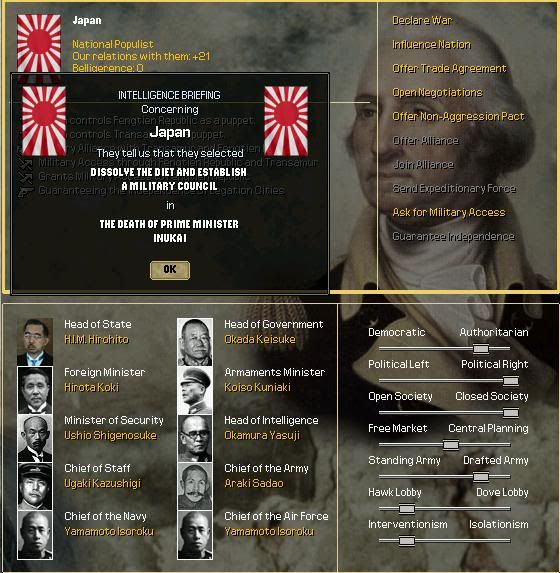
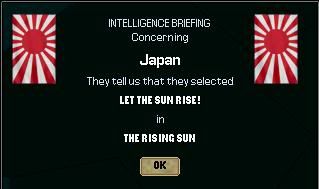 American media condemns the events, but the government remains silent.
American media condemns the events, but the government remains silent.
In the Union of Britain, the Congress of the Trade Unions meets to decide the leadership and course of the country. Whilst Canada and other powers decry it as an illegitimate government, it has to be said that Britain has remained closest to the democratic and libertarian ideals out of all the socialist powers. Nevertheless the internal contradictions of leftism are highlighted over the weeks of debate and wrangling, as entirely incompatible decisions are made by the CTU. As the meeting draws to a close, Philip Snowden announces his resignation as Chairman of the Congress of the Trade Unions, leaving his succession an open question. It seems that the Totalists led by Comrade Mosley might be able to secure power, but this can't yet be known for sure.
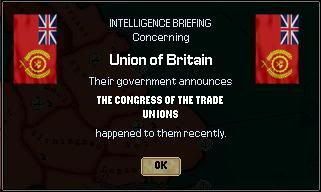 British Socialist democracy in action.
British Socialist democracy in action.
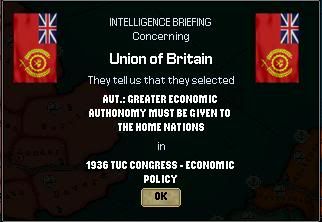 So far so good...
So far so good...
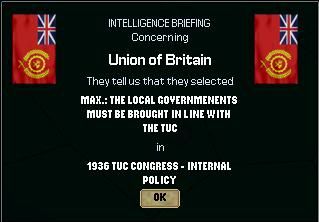 More freedom, but more control by the center. Okay.
More freedom, but more control by the center. Okay.
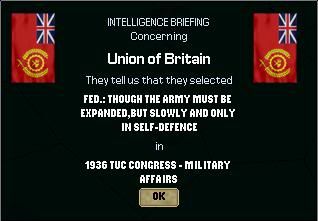 Our army will be used for self-defence...
Our army will be used for self-defence...
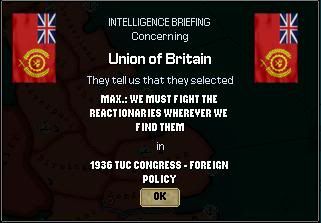 ... except when it isn't, of course!
... except when it isn't, of course!
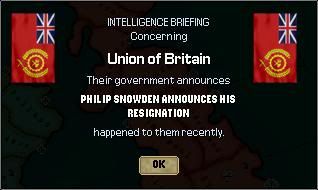 Will Oswald Mosley emerge on top?
Will Oswald Mosley emerge on top?
Meanwhile, Wrangel's Russia decides that they would like to be a major naval power. When news of this new doctrine reaches D.C. there is much laughter, until it is realized that with the world as it is, nobody's likely to stop Russia for a long time, and if they have long enough they could put a formidable fleet to sea.
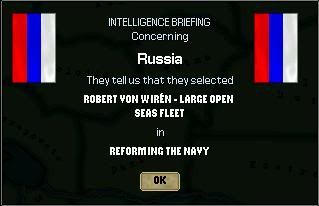 Then again, the British, Canadian, Japanese, and American Navies are all mighty already.
Then again, the British, Canadian, Japanese, and American Navies are all mighty already.
In September, however, the real drama would be invisible and it would take place a lot closer to home...
)




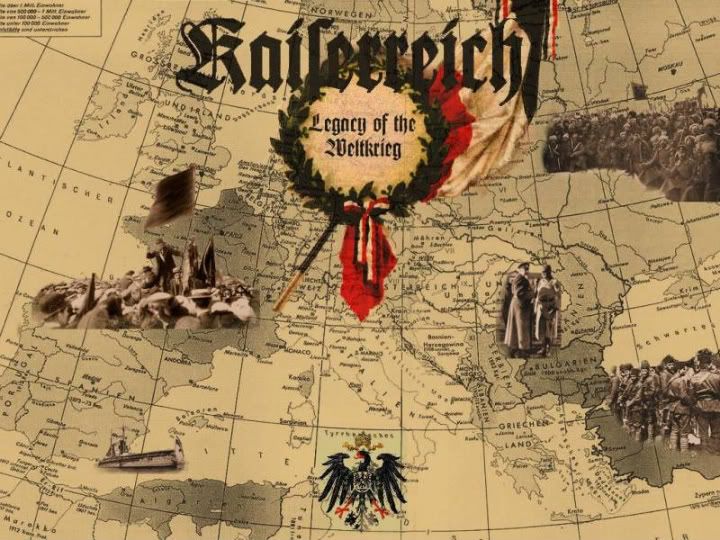


 Reply With Quote
Reply With Quote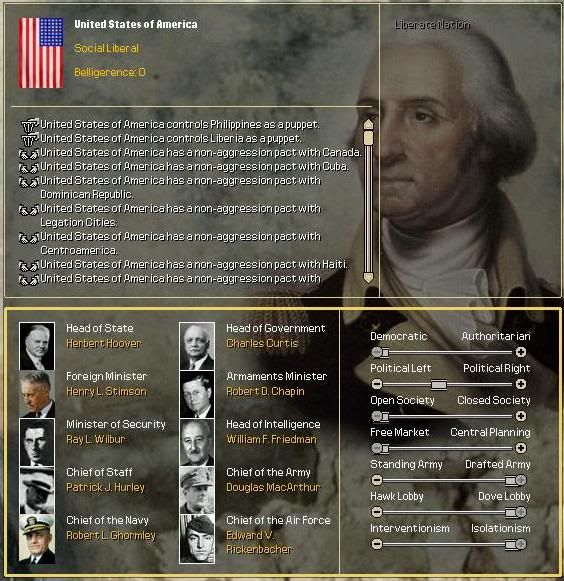
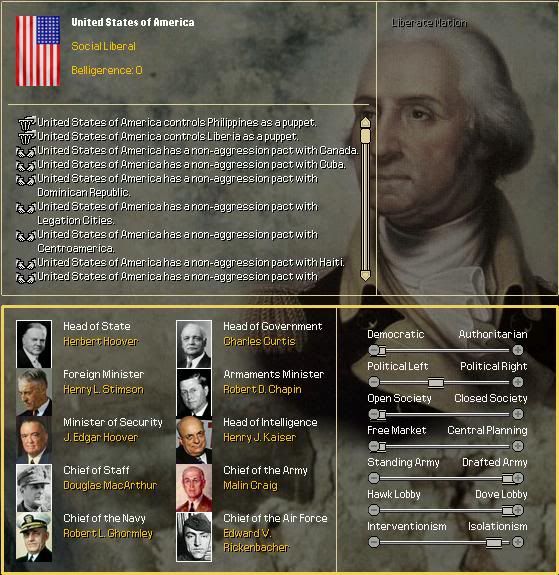
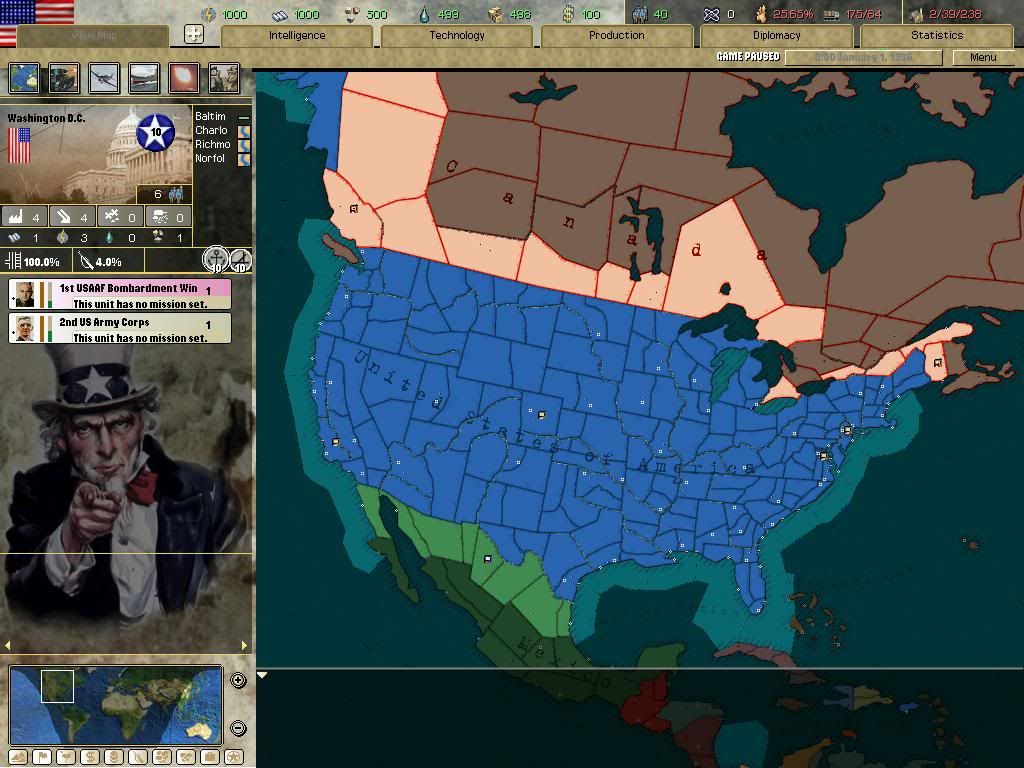
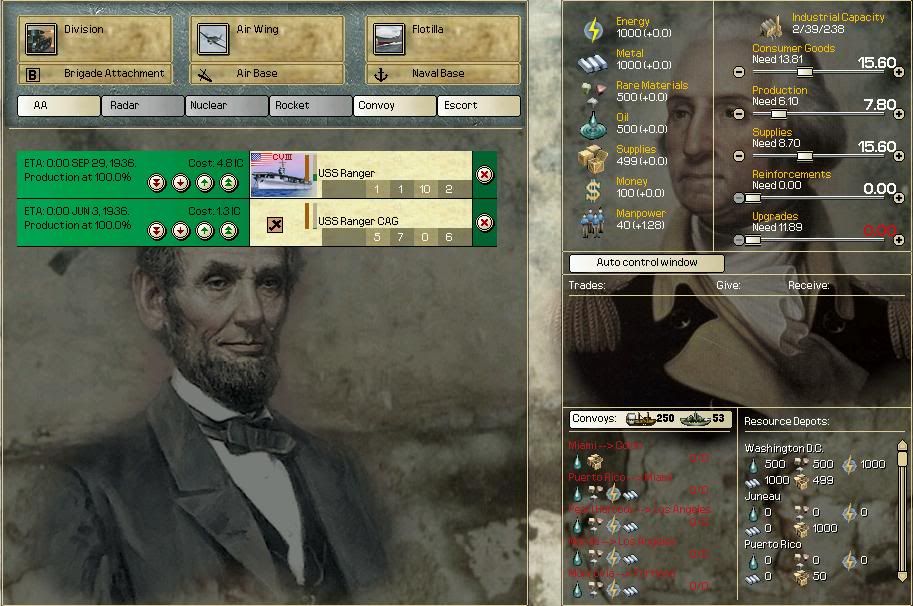
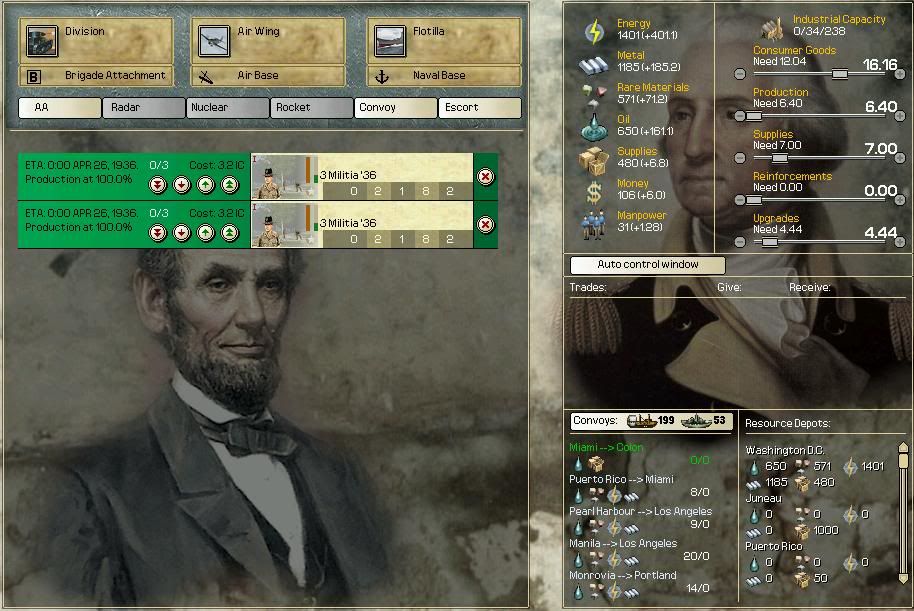
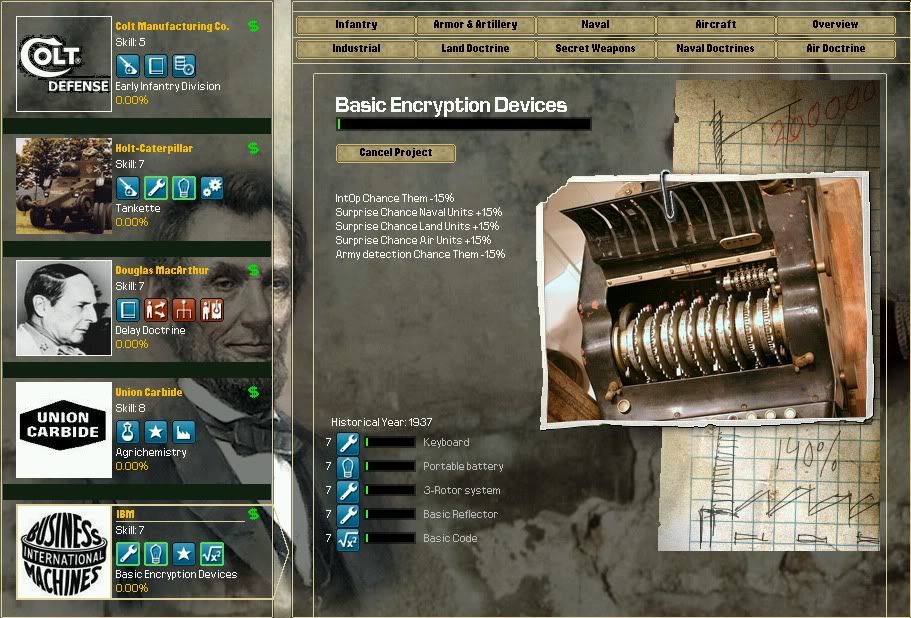

 How did you know?
How did you know?
